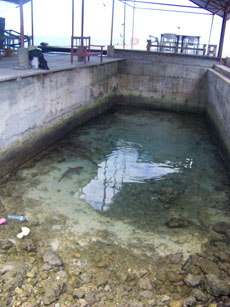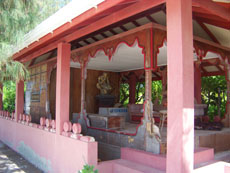An undercover account of Male’s illegal brothel scene, dubbed ‘Operation Sunset’, has landed Sun in hot water with the Maldives Media Council (MMC) for its lurid details of the experience.
The stories, which initially appeared in Sun’s magazine, reportedly involved three Sun journalists visiting massage parlours in Male’ and soliciting sex from the women in an attempt to expose illegal brothels operating in the capital.
The stories have sparked a public debate on morality and journalism, and prompted the Maldives Media Council (MMC) to call an urgent meeting and demand that the offending edition be pulled from circulation.
Versions of the stories were also published on Sun Online’s website, and are now the site’s most viewed. A source within Sun Online told Minivan News that the content was edited and toned down prior to appearing on site.
Police Sub-Inspector Ahmed Shiyam said claims made in the article that the operation was conducted with the assistance of police were untrue.
“They called the police media section and said they were checking these places to see if anything illegal was taking place, but they didn’t say how. They have provided no information on these places to police,” Shiyam said, adding that police had also received complaints from the public over the story.
Shiyam confirmed that the case had been sent to the Prosecutor General’s office by the MMC, but did not say whether the subject of the investigation would be the journalists involved, the publication or the alleged brothels.
“We are waiting for the PG to request us to start an investigation,” he said.
President of the MMC Mohamed Nazeef said the council had never before received such a significant volume of complaints following the publication of a story.
“[The complaints] were mainly about the style of presentation, so we decided to ask them to pull the magazine,” Nazeef said, adding that the matter had been forwarded to the Prosecutor General’s office “because of the police issues involved.”
The MMC’s policy was to step back when other authorities became involved, he said.
“We have been very cautious because we do not want to kill investigative journalism in the Maldives or undermine the reporting of serious issues,” he said. “But the problem was the style of writing – it was not professional, and the editor has to take responsibility. These are young journalists with little training, and the editors are senior people who have put them in a bad position by saying they have paid [for sexual services].”
Nazeef said he had spoken to the executive editor of both publications, Ahmed ‘Hiriga’ Zahir, and ascertained that the original article was published in the magazine due to some internal misunderstanding.
“I got the feeling that they asked these boys to do this and write about the experience,” Nazreef said. “I think this is an issue of training. We need to run a course in investigative journalism, perhaps bring in a CNN journalist to talk to them, and offer training on how to cover protests, possibly with someone from the Western Australian police [who trained police in the Maldives].”
Zahir told Minivan News he had no official comment on the matter, and referred Minivan News to the editor of Sun Magazine, Shinan Ali. Ali was not responding at time of press.
The Maldives Journalists Association (MJA), of which Zahir is President, has meanwhile issued a statement stating that while some of words and phrases used in the article were “inappropriate for Maldivian society”, the MMC’s decision would “narrow the opportunity for investigative journalism in the Maldives.”
The MMC could have resolved the issue without forwarding the case to the Prosecutor General, the MJA suggested, as illegal prostitution in the Maldives was “something the public needs to be made aware of.”
Lawyer and former Attorney General Dr Ahmed Ali Sawad suggested to Minivan News that while the media was free to pursue the truth in the Maldives, it was still bound by the need for “ethical” conduct in doing so.
“I believe investigative journalism is about unraveling the truth and truth is protected by law. Our constitution and the democratic system we are working to establish is designed to protect journalists who reveal the truth,” he said.
“Responsible investigative journalism implies not being accountable to the consequences of the revealed truth, but to the ethical propriety [standards] of the revealing of the truth,” he said.


